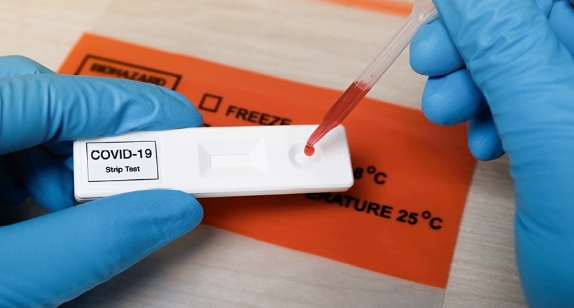Pathology labs - the most targetted
Cyber fraudsters have recently been targeting pathology laboratories and committing fraud, impersonating soldiers interested in getting Covid tests done. Over the past one and a half months, 15 laboratories have been defrauded. Increasing awareness of cyber frauds has led the association of pathology laboratories to write to the Director-General of Police (DGP). Despite numerous attempts to track the gang, they remain at large.

Gujarat Covid test Fraud
The fraudsters ripped off Rs 60,000 and Rs 10,000 from Gujarat Blood Bank and Pathology Laboratory in Bopal and Paldi. Specifically, an officer claiming to represent the army asks a service member for a price quote for Covid and other tests. A price is negotiated after which the frauds choose to pay via UPI. An employee of the lab receives a web link, which lets them access their bank accounts.
A pathology lab was contacted last month by an army officer, identifying himself as a lab technician. He informed that 20 army men wanted to get tested and talked via video chat to appear legit. He wanted to know what the prices were for each test. He requested a discount from the lab because he was an army member.
A settlement was reached with the lab, and he provided them with an address so they could collect the samples and sent Rs 5 through UPI to confirm the collection. They were then asked to enter their UPI account password via a web link he sent them. The money from their account was deducted when they entered the password on the hyperlink page.
A common thing in the state
Fraudsters used the same operation to steal Rs 60,000 from another branch of the lab. Throughout the city, there have been 15 such incidents. Their colleagues and employees were notified. An increasing number of fraudsters target pathology laboratories that have been approved by the ICMR to run RT-PCRs. The state has received five complaints of cyber fraud, including one for cheating of Rs 1.50 lakh in Gandhidham.
A person who blindly trusts strangers over the internet might end up paying the price.
As cashless India becomes a reality, no one on the internet is worth trusting. There are a large number of scams reported each year, and they are on the rise.
In addition to protecting oneself from Coronaviruses, one must keep an eye out for cybercriminals. Financial transactions conducted on the internet by users are common targets for these criminals.
Mobile devices are becoming increasingly popular for making cashless, real-time payments through Unified Payment Interfaces (UPIs), a network infrastructure that facilitates cashless, real-time transactions.
Unauthorized payment links can be sent to your mobile phone via SMS by fraudsters. In almost every regard, these fake bank URLs look identical to the real thing. The UPI payment app installed on your phone will direct you to that link if you click on it in a hurry and will ask you to choose which apps to debit automatically. You will immediately see the amount get deducted from your UPI app once your permission is granted.
The following tips will help you protect your money against fraud.
- Police or the cybercrime cell can even be contacted about the incident.
- When using the digital payments app, you will probably receive a spam warning. Do not ignore it. The warning would appear if you transact with someone who had been reported earlier.
- Using digital escrow platforms as a payment method is preferred. When you pay through an Escrow payment system over the internet, you are not sharing your information with strangers. One such platform for escrow is Vouch

This is Fraud Story #32. Check back here for more fraud chronicles and scams that you can protect yourself from.
Safety is not just about protecting your credit or debit card number. It's about having control of your money till you've received the product or service you bought online!
-------------------------------------------------------------------------------
Note: This is a good-faith initiative to educate the world about how to avoid frauds like these. Do you have a fraud that you would like to report? Please write to us at letstalk@iamvouched.com







